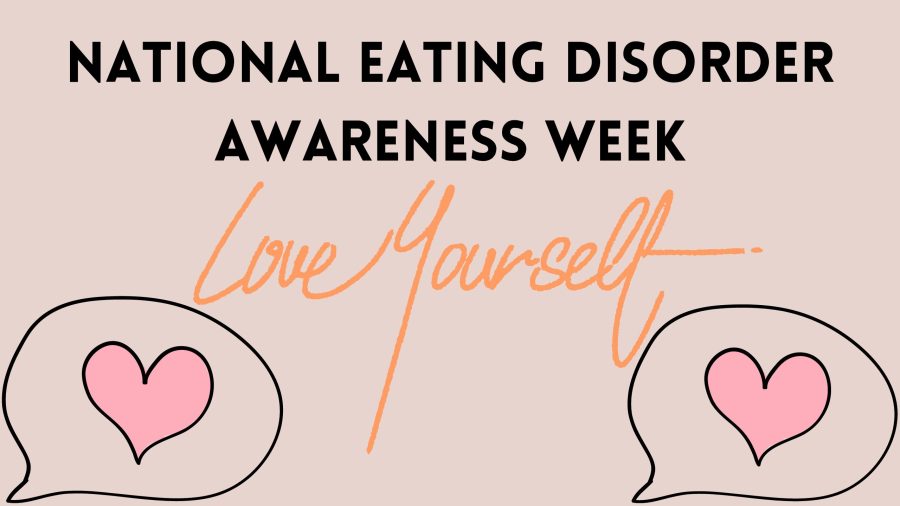National Eating Disorder Awareness Week: ‘the tragic truth’
This week is National Eating Disorder Awareness Week. Sarah Buttikofer discusses why eating disorders are important to talk about to make a change.
Editor’s Note: Feb. 21 to Feb. 27 is National Eating Disorder Awareness Week. This article may contain sensitive content. If you are struggling please call (800) 931-2237.
Alarming statistic alert—over 28 million Americans will struggle with an eating disorder at some point in their life, according to the U.S. Department of Health and Human Services [HHS].
Due to National Eating Disorder Awareness Week, Instagram, Twitter, Facebook, and practically any social media has been blowing up with awareness posts.
That being the case, now is a more important time than ever to talk about this relevant issue.
According to 13abc, the three most common eating disorders are bulimia, anorexia, and binge eating disorder.
This article states the tragic truth that Executive Director of the Toledo Center for Eating Disorders Kelly Brown brought to the public’s attention: eating disorders often develop from a young age.
“42 percent of 6 to 9 year-olds want to be thinner and 81 percent of 10 year-olds are afraid of being fat or overweight,” Brown said. “So number one, that’s a very young age, and number two, those are significant percentages.”
The thought of young children having to face this is revolting, to say the least. In a perfect world, children would be thinking about when the next episode of their favorite television show comes out.
Alarming statistic number two—eating disorders are the cause of 10,200 deaths each year, being the second deadliest mental illness, according to the American Society for Nutrition [ASN].
On top of that, it is only getting worse as eating disorders in society have “increased over the study period from 3.5% for the 2000–2006 period to 7.8% for the 2013–2018 period,” according to ASN.
So now that we know the facts, one question arises: Where do we go from here?
First off, our society, as one whole united front, needs to recognize the problem. Awareness needs to be spread and victims of an eating disorder must be supported and considered.
Ignoring the problem will only hurt the situation while talking and being open about the situation at hand will help victims to feel comfortable sharing their own stories. The most impactful way to help reduce stigma regarding this topic is by word of mouth. If people hear one person talking about this, they will start to feel comfortable themselves, causing a domino effect.
We need to normalize all different body types, and call every single person what they are—beautiful.

Sarah Buttikofer is a senior who joined the publication during her freshman year as a staff writer. She was an editor during her sophomore year and become...
















